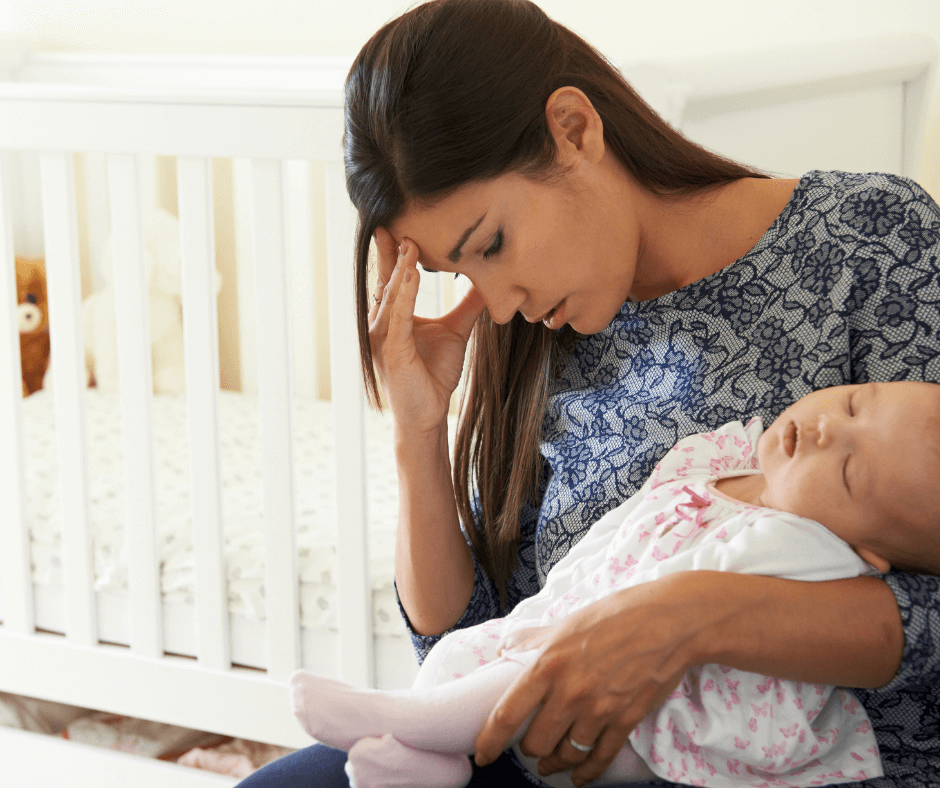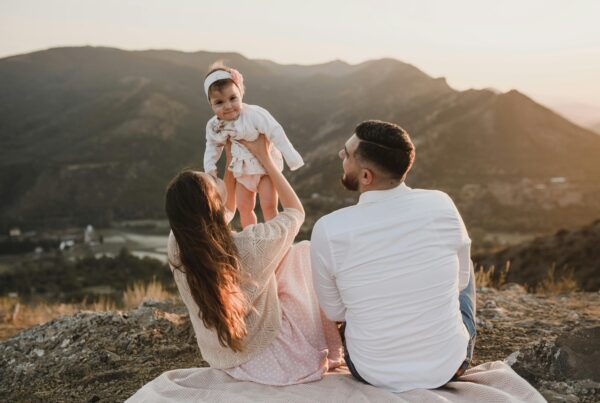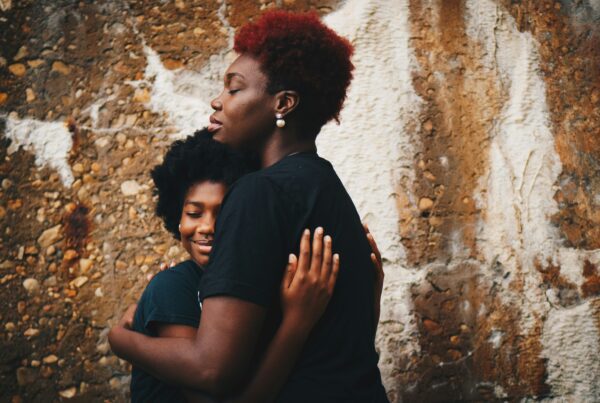Moms Share Candidly About Their Struggles with Postpartum Depression
National Mental Health day is observed on October 10th every year to help raise awareness about an aspect of well-being that many people unfortunately tend to ignore.
Busy new moms often find it hard to find any spare time for themselves, but they should be especially vigilant for signs of postpartum depression. Although there is no single cause of PPD, fluctuating hormones and emotional changes can contribute to it. Different from baby blues, PPD does not seem to get better over the weeks and in fact may interfere with a mom’s ability to care for her baby or do other daily tasks. It’s important to recognize postpartum depression symptoms and treat PPD.
In Their Own Words
We asked several moms who have gone through postpartum depression to tell us about their experience.
1. How did you realize you were suffering from postpartum depression?
– “I knew when I was crying daily and couldn’t get out of the funk I was in. At first, I thought it was just baby blues, but then it lasted for several months. My mom, who I spoke with daily on the phone (who lived out of state) also noticed I was not myself. She suggested I go to a new doctor.”
– “I actually didn’t realize it until after I went through it. I was feeling really isolated after moving and praying for God to help me find some mommy friends in my area after months of dealing with it alone. A few of the groups I joined weren’t quite a fit. I finally just started my own group and met some amazing ladies that shared their postpartum struggles.”
– “I did not know I was suffering from postpartum psychosis. I knew something was not right. I could not focus even when driving in the car with the babies. My second born was colicky and cried ALL THE TIME and would make my older one start crying too. My husband was traveling all the time and we had just moved. I did not know anyone and we were in a small apartment waiting for our house to be built. I literally did not get any sleep and I would just let the babies scream and go sit in the closet, close the door and cry. I knew something was really wrong because I wanted to shake the life out of baby because he would not stop screaming and there was nothing I could do. I was breastfeeding two children and had no energy. I had horrible thoughts of harming the baby, which I still feel terrible about to this day.”
2. When and how did you get help for your PPD?
– “I found a Family Medicine doctor whose biography stated she had a special interest in working with women who had postpartum depression. She was able to recognize I had postpartum depression and anxiety.”
– “I didn’t get help since I didn’t even know what it was. I literally thought I was just crazy and was actually scared to admit everything I felt to anyone (especially my hubby). I didn’t want to seem like I was unfit to be a mom or have hubby think I couldn’t handle it.”
– “I was forced to get help. I went to a therapist and started taking Xanax. I got diagnosed with PPP after I took a handful of Xanax, got in the car with my babies in car seats. With the baby screaming at the top of his lungs, I drove until I blacked out and crashed my car. I don’t think I was intentionally trying to harm myself and the kids but I was not thinking and the screaming sent me over the edge. I got intensive help after that. There were other thoughts in my head that are fuzzy but they were thoughts about harming myself and the kids.”
3. What was the hardest part about having postpartum depression?
– “The hardest part was not understanding why I was so sad all the time when my daughter was very much wanted, my husband and I had tried getting pregnant for a while, and all I wanted was to be a mom. I felt guilty and ashamed and beat myself up for feeling this way because I was supposed to be happy! I just had the baby I had been wanting for so long! It was also very difficult to make the decision to get on medication. I am a ‘crunchy’ mom who eats organic, uses essential oils to clean, etc., and taking medicine for depression/anxiety made me feel like a failure as a mom.”
– “I think the feeling of being helpless. My first was colicky and would literally cry for 3 straight hours until she was so tired she would just fall asleep. I also had the hardest time breastfeeding even after getting help with a lactation consultant. Not to mention strangers feel like it’s appropriate to ask if you’re breastfeeding. If not you’re evil if you don’t keep trying. All the factors and newness of motherhood resulted in being super overwhelming.”
– “The guilt that I would want to do something to harm this beautiful human that I created from scratch and love more than life itself. I hated myself for a long time after that.”
4. What helped you the most during your postpartum depression journey?
– “First, having a supportive, compassionate doctor who really listened, and was able to give me information on postpartum, and up to date research articles on medication. My doctor was a mother of 4, and she had postpartum depression with her 4th and had to get on medication. It helped to hear this as well. Second, a support group. Moms that understood these feelings and moms that had been through it and conquered it was essential in my overcoming PPD.”
– “Prayer. Sometimes I would just put my little in the crib and take a breath outside, just pleading with God to help. I cried and cried a lot. I also told myself that I had to be strong for my helpless little that 100% needed me for everything.”
– “Intense therapy and sleep.”
5. What do you want other moms to know about suffering through postpartum depression?
– “First, you are not alone. Second, there is absolutely nothing shameful about suffering through postpartum depression. Three, do not feel guilty or afraid to take meds for postpartum depression symptoms. A baby senses when a mother is depressed or anxious and he/she needs a mom that is emotionally healthy. You deserve to take care of yourself in order to be the best mom you can be for your child. Your hormones and chemistry are most likely temporarily out of whack and meds don’t have to be forever. You will not feel this way forever and you will feel better with the right help. Having PPD does not make you a bad mom! Again, it is your hormones and chemistry. Seek a PPD support group because you shouldn’t go through this alone and you will be with women that very much understand!”
– “That it’s ok to ask for help – especially from your hubby, close family, doctor or even professionally. My husband and family had no clue, and that was mainly my doing because I hid it due to fear of judgement, which wasn’t even rational because my hubby has always been encouraging. Surround yourself with a circle of people that are in your season of life – ones that you trust and can encourage you. But most importantly, I found it helpful to pray, pray, pray. In those moments of darkness (especially breastfeeding in the early morning hours), I would just plead with God to get me through that moment, hour, that day, etc. You CAN get through this!”
– “You are not alone and should not feel ashamed.”
Resources for Postpartum Depression
These moms also noted that each of their pregnancies were different and they did not necessarily experience PPD with all of them. Though you may not be suffering from PPD, it’s common to have a touch of the baby blues. If you need tips on self-care or are looking for some company from other moms, consider signing up for the Motherhood Center’s New Mom Self Care and Support Class. However, if you or someone you know is overwhelmed and possibly struggling with PPD, please don’t hesitate to reach out to the Center for Postpartum Family Health.



